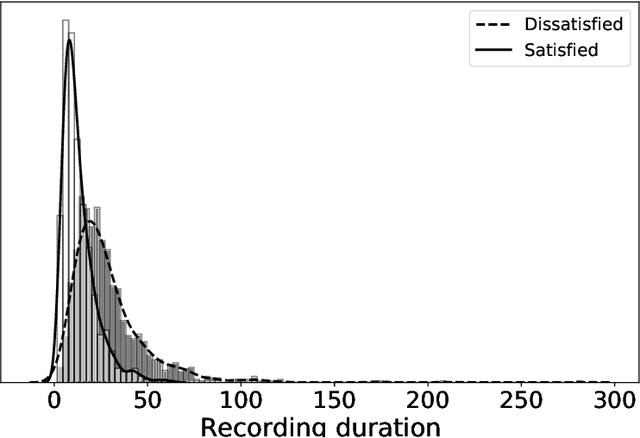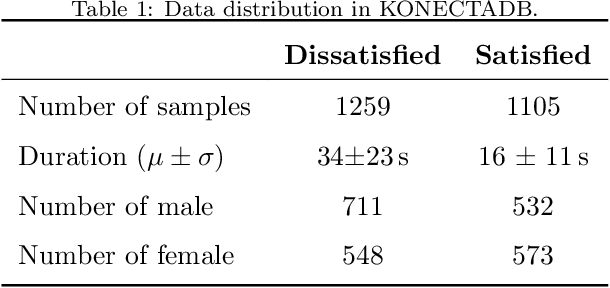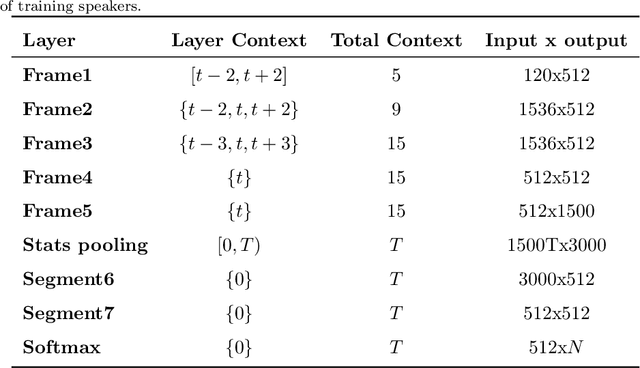Luis Felipe Parra-Gallego
Classification of Emotions and Evaluation of Customer Satisfaction from Speech in Real World Acoustic Environments
Aug 26, 2021



Abstract:This paper focuses on finding suitable features to robustly recognize emotions and evaluate customer satisfaction from speech in real acoustic scenarios. The classification of emotions is based on standard and well-known corpora and the evaluation of customer satisfaction is based on recordings of real opinions given by customers about the received service during phone calls with call-center agents. The feature sets considered in this study include two speaker models, namely x-vectors and i-vectors, and also the well known feature set introduced in the Interspeech 2010 Paralinguistics Challenge (I2010PC). Additionally, we introduce the use of phonation, articulation and prosody features extracted with the DisVoice framework as alternative feature sets to robustly model emotions and customer satisfaction from speech. The results indicate that the I2010PC feature set is the best approach to classify emotions in the standard databases typically used in the literature. When considering the recordings collected in the call-center, without any control over the acoustic conditions, the best results are obtained with our articulation features. The I2010PC feature set includes 1584 measures while the articulation approach only includes 488 measures. We think that the proposed approach is more suitable for real-world applications where the acoustic conditions are not controlled and also it is potentially more convenient for industrial applications.
 Add to Chrome
Add to Chrome Add to Firefox
Add to Firefox Add to Edge
Add to Edge